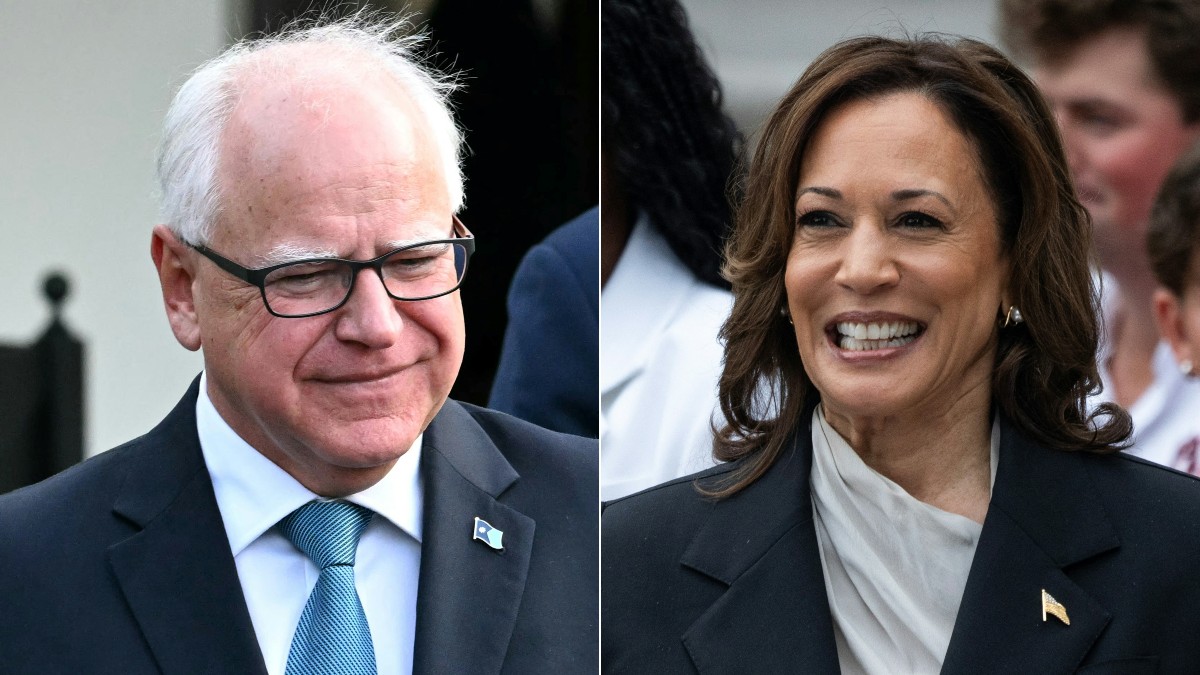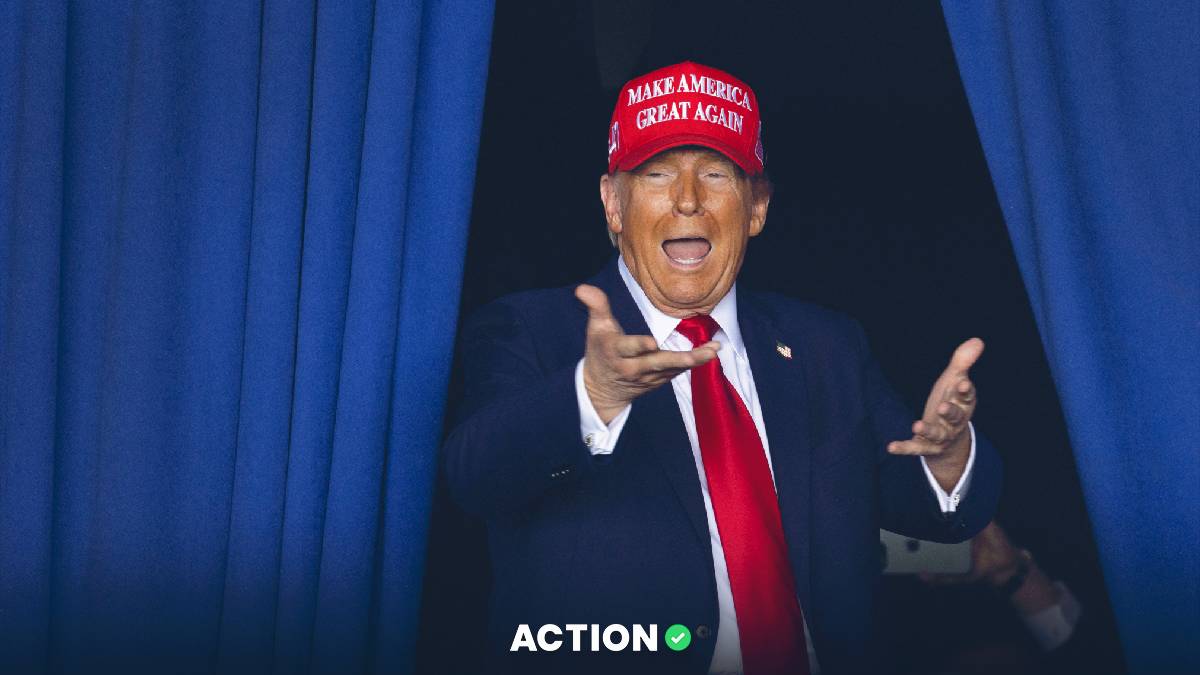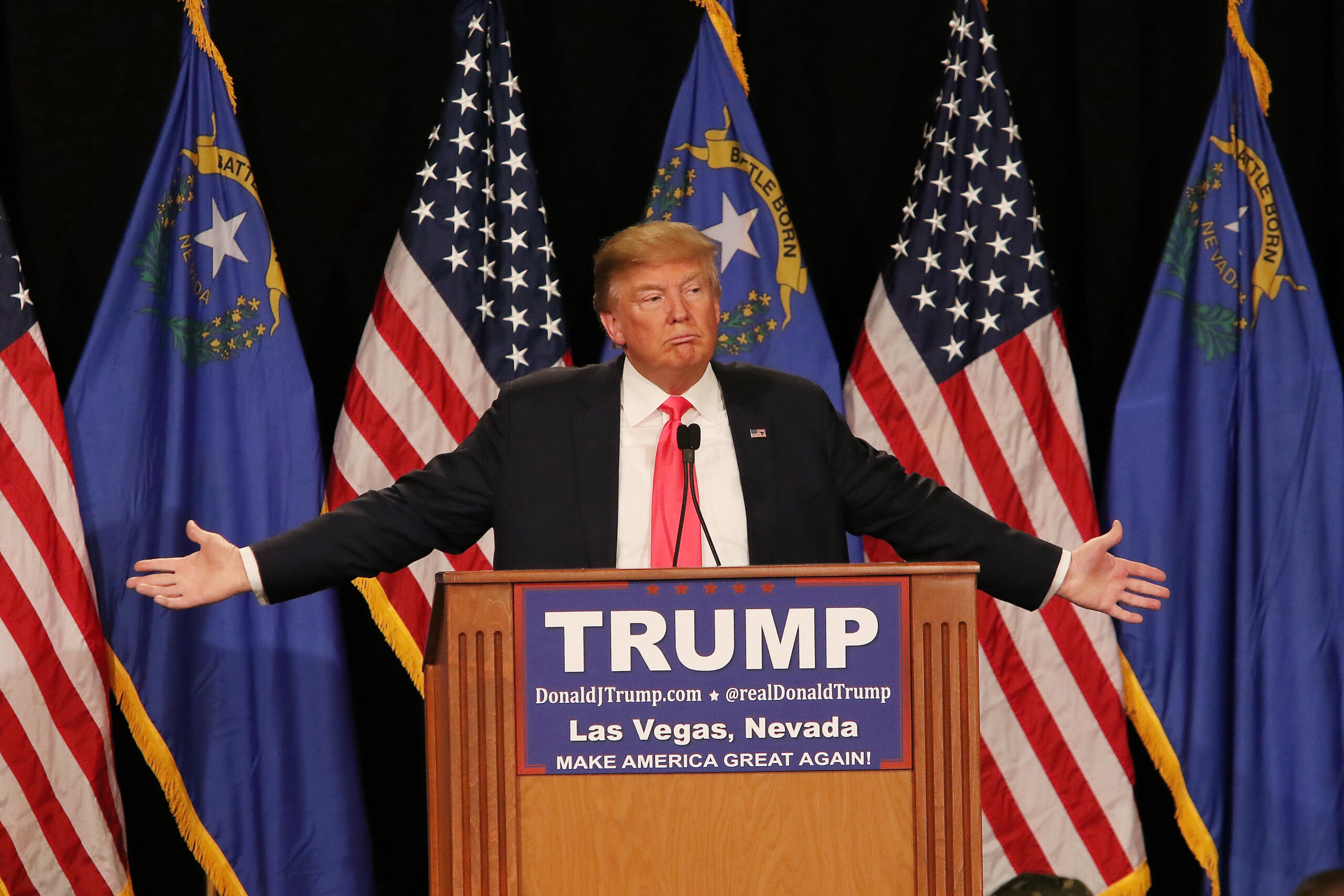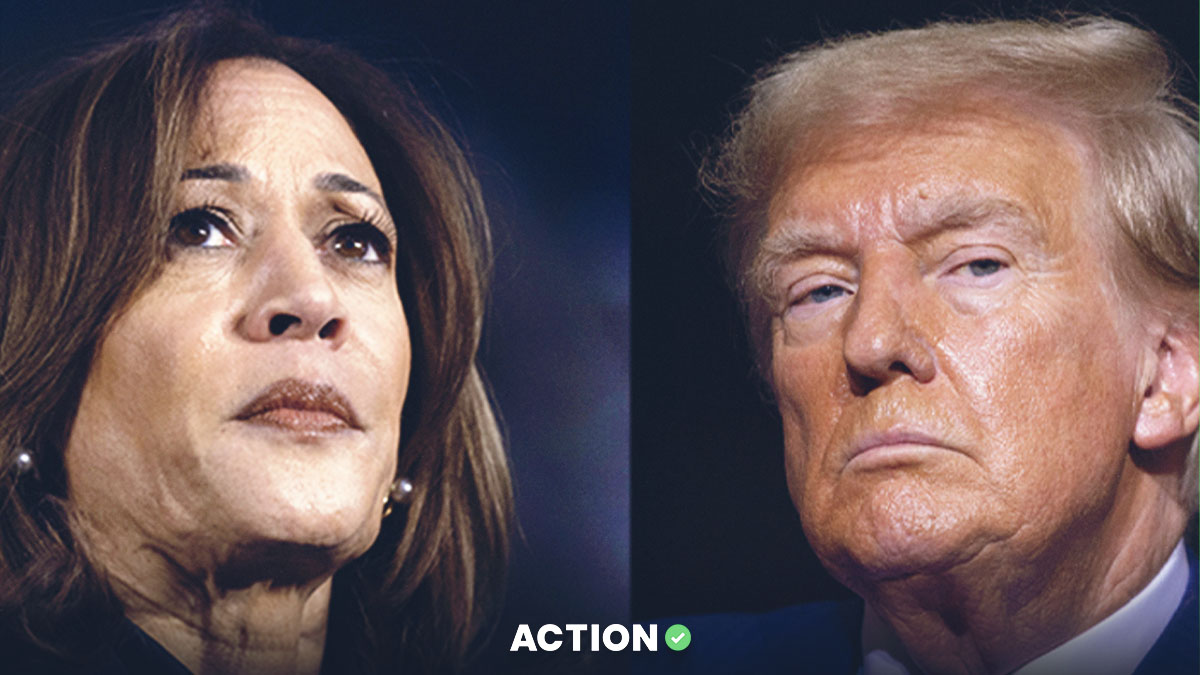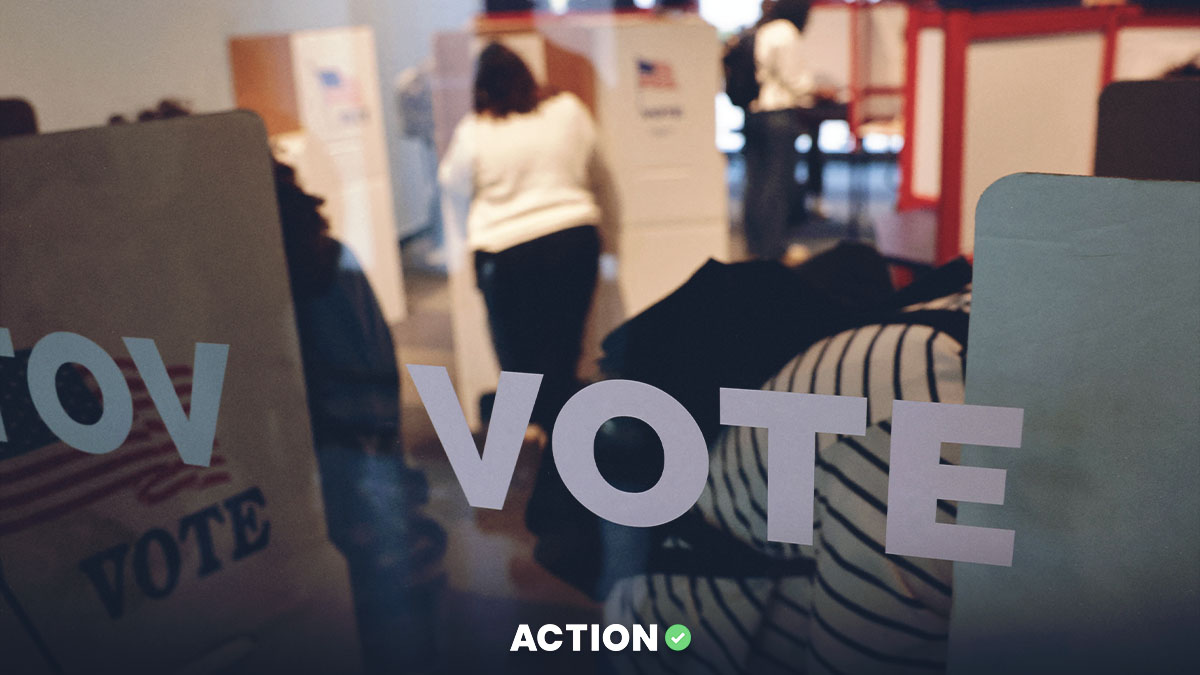2024 Presidential Election Odds, Predictions
| Presidential Candidate | Election Odds | Chance to Win Election |
|---|---|---|
| Donald Trump | -133 | 52.15% |
| Kamala Harris | +100 | 45.68% |
| Robert F. Kennedy Jr. | +10000 | 0.90% |
| Hillary Clinton | +20000 | 0.45% |
| Michelle Obama | +20000 | 0.45% |
| Nikki Haley | +25000 | 0.36% |
Odds via BetMGM UK. Chance to win the election and election predictions are based on implied probability with the vigorish removed. Gambling on elections is not legally allowed in the United States.
Democratic presidential candidate Kamala Harris has reportedly selected Minnesota governor Tim Walz as her vice presidential running mate for the 2024 presidential election against former President Donald Trump and his VP, JD Vance.
Let's get to the latest 2024 presidential election odds and what Harris' choice of Walz means for each candidate's chances to win the United States presidential election on November 5.
What Were Tim Walz' Odds to be the Democratic Vice Presidential Nominee?
On Monday evening, after Reuters reported that the Vice Presidential decision was down to Minnesota governor Tim Walz and Pennyslvania governor Josh Shapiro, it was actually Shapiro who saw his lead to become the VP nominee increase substantially from -200 to -417. At the same time, Walz's odds did improve, as they moved from +300 to +250.
As the night wore on, most sportsbooks that have political betting odds took their Vice President markets off the board. But just before midnight on Monday night into Tuesday morning, Walz shot up to +110, with Shapiro dropping to -140.
That means that according to the odds available at the time, Tim Walz was +110 to be the Democratic vice presidential nominee in the most recent odds before the selection was made.
How Presidential Election Odds Moved When Harris Picked Walz
You might be somewhat surprised to learn that Vice President Kamala Harris selecting Tim Walz as her potential vice president didn't move the election betting odds all that much. In fact, the odds-based presidential election predictions for Donald Trump and Kamala Harris stayed exactly the same after Tuesday morning's news.
Former President Donald Trump was a -133 favorite to win the 2024 presidential election before Harris' selection. After, he was still -133.
Vice President Kamala Harris was +100 before she picked Walz, and she is still +100 with the Minnesota governor on the ticket.
What did change slightly was the percentage chance for each candidate to win the election, as names like Michelle Obama and Hillary Clinton saw their odds to win the election move from 100-1 to 200-1 after the Democratic ticket was solidified. The small percentage chance of an Obama or Clinton win that those 100-1 odds represented was shifted around as their odds got longer.
So let's break that down.
Presidential Election Odds for Kamala Harris: Chances Harris Wins 2024 Election
At her current +100 odds, Vice President Harris has a 45.68% chance to win the presidential election in November. Her chances to win the election before she selected Walz were 45.27%.
Presidential Election Odds for Donald Trump: Chances Trump Re-Claims White House
At his current -133 odds, former president Trump has a 52.15% chance of winning the 2024 general election. His chances to win the election before Tuesday's Democratic VP news were 51.68%.
Harris was +110 late last week. And keep in mind, just 37 days ago, in the moments before the first debate between former president Trump and current President Joe Biden, she was as big as a +5000 underdog. Now, it wouldn't be out of the question to see Vice President Harris become the betting favorite before November's election.
Trump's odds slipped last week after his appearance on a panel at an NABJ conference. He was -175 before that event and came out of it at -137 before moving again to -133 over the weekend.
This is the longest former President Trump's election odds have been in a months. Trump was -120 as recently as mid-May, when President Biden was gamely challenging the Republican nominee to a potential debate.
Presidential Election Odds for Winning Party of 2024 Electoral College
| Party | Odds | Chance to Win |
|---|---|---|
| Republicans | -133 | 52.82% |
| Democrats | +100 | 46.27% |
| Independent/Any Other Party | +10000 | 0.92% |
Finally, let's take a look at the candidate-agnostic odds for which party will win in November.
The odds on which party will win the Electoral College, and therefore the White House, are very directly aligned with the odds for Trump, Harris and the rest of the field.
With Trump at -133, the Republican Party is also at -133 to win in November. Similarly, with Harris at +100, the Democrats are at +100.
The current presidential election odds give the Republicans a 52.82% chance of winning in November and the Democrats a 46.27% chance, with an Independent or third-party candidate given a 0.92% chance.
Presidential Election Odds for Winning Party of 2024 Popular Vote
| Party | Odds | Chance to Win |
|---|---|---|
| Democrats | -400 | 73.02% |
| Republicans | +250 | 26.08% |
| Independent/Any Other Party | +10000 | 0.90% |
As for the popular vote, the Democrats are now massive -400 favorites, which equals a 73.02% chance of earning the most votes across the country. They were -333 early last week. The Republicans are +250 to win the popular vote, a 26.08% chance.
The Dems have won the past four popular votes by at least 2% (4.45% in 2020, 2.09% in 2016, 3.86% in 2012 and 7.27% in 2008) and have won seven of the past eight popular votes overall.
Remember, though, that the United States presidential election is decided by which candidate wins the 270 electoral votes necessary to win the Electoral College.
Electoral votes are allocated on a state-by-state basis, based on the number of members of the House of Representatives, plus the two members of the Senate in each state, with Washington, D.C. also having three electors, for a total of 538 electoral college votes.
That means that 270 electoral votes is the minimum number needed to win the majority of the votes. In the exceedingly rare event of a tie in the Electoral College, the House of Representatives determines the President, with each state having one vote, and the Senate determines the Vice President.


